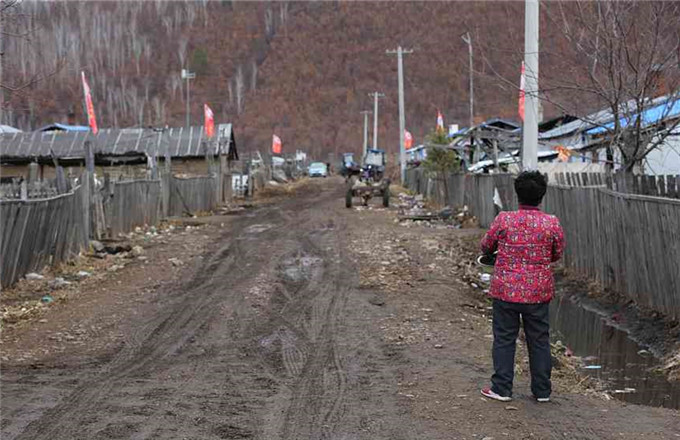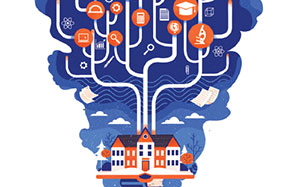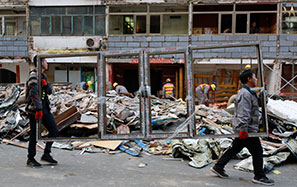College vending machines sell HIV self-testing kits
As the HIV/AIDS epidemic begins to affect more young Chinese, the nation's health and education authorities are teaming up to install vending machines with HIV self-testing kits on university campuses to help raise awareness and fight the disease, officials said.
Ten Chinese universities in Beijing, the provinces of Sichuan, Yunnan, and Heilongjiang, and the Guangxi Zhuang autonomous region have joined the initiative, which many call "progressive" since sex remains an uncomfortable subject and a systematic sex education program is still lacking.
"We can not wait to act, even though it's difficult. Otherwise we put the students' health at risk," said Shen Jie, deputy director of the Chinese Association of STD and AIDS Prevention and Control, which is leading the initiative.
"More universities are in talks with us to install such machines on campus as an option for students seeking HIV testing, which should be normalized."
She said many students are reluctant to visit HIV testing clinics run by health authorities even though the services are free. Privacy and fear of discrimination largely keep them away.
China's HIV epidemic - particularly among students ages 15 to 24, mostly through unprotected gay sex - has expanded rapidly in the past few years, said Wu Zunyou, head of the National Center for AIDS/STD Control and Prevention.
Over the weekend, a national headline-making report emerged about 106 university students testing positive for HIV in a single district of Yuelu, Changsha, capital of Hunan province, in recent years, according to local public health institutions. Most were gay men.
More than 2,300 students nationwide ages 15 to 24 were diagnosed with HIV during the first nine months of last four times as of 2010.
Wu urged university authorities to recognize the challenge and increase cooperation with health departments to improve HIV/AIDS control, offering as examples education in safe sex and HIV prevention and making testing more accessible on campuses.
In the vending machine projects, self-test kits are on sale on campuses alongside snacks and beverages, said Liu Peng, who is responsible for the program with the prevention and control association. "There is more privacy this way."
The kit is used to collect a urine sample and costs 30 yuan ($4.35). After sending the sample to a designated lab run by public health authorities, users can check results over the internet. No ID information is required, he added.
"Roughly 100 samples were sent back from our campus in the first few months" after the vending machines were installed, said Zhang Jihong, health center head at Southwest Petroleum University in Chengdu, Sichuan province.
The university joined the initiative in June. The two vending machines selling the kits are placed at the health center and stadium, two places popular with students.
A sophomore surnamed Du said: "I never saw someone buy the kit, but I did see the kit packages in our dormitory toilets. And that somewhat serves as an alert for me that the disease is actually all around and we need self-protection."
Shen Jie said, "The fact that more universities became willing to join us demonstrates an ever increasing public awareness of AIDS controls."
shanjuan@chinadaily.com.cn



















